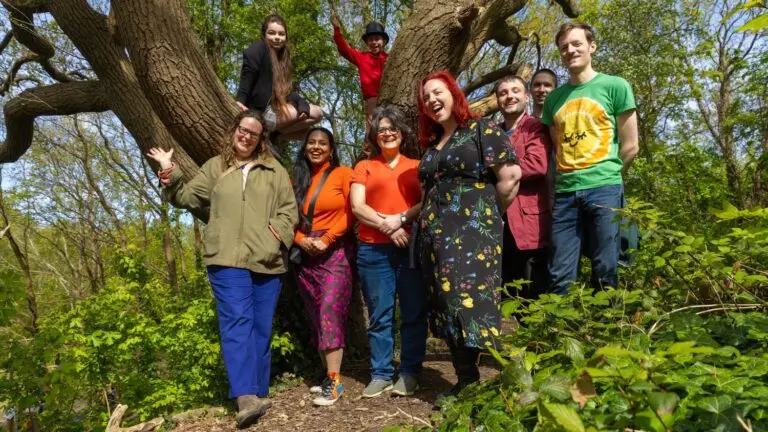What’s in a name change? In 2015, most people probably paid no attention when the tech company Google changed its name to Alphabet. Nor indeed did many in 1997 when Google changed its name from (cough) BackRub. Several entire countries have changed their names over the past century, including Sri Lanka (‘holy isle’) from Ceylon, and Thailand (‘land of the free’) from Siam. The musician Yusuf Islam changed his name for devotional reasons from Cat Steven, as did the fighter Muhammad Ali, from Cassius Clay.
Woodland Savers was named in 2021 by a group of friends in Devon. They crowdfunded to save their local woodlands from being sold to anyone who might not have the interests of nature or local people in mind. The name fused the urgency of saving nature with the prospect of land being a better place to put your money than the banks investing in industries doing so much damage to nature.
This was a powerful idea, the value of which it will take generations to fully unpack. It restores to common folk the power to buy land, for a thousand years the preserve of private, corporate or government wealth. The Forestry Commission backed the research and development of it. The Frederick Mulder and Esmée Fairbairn Foundations backed its becoming an organisation equipped to help any community to buy and manage land. The team is now working with communities and partners across the UK to make it available. The only trouble for the name Woodland Savers, is that it isn’t quite big enough for the idea.
Because this approach, allying crowdfunding to a blend of match investment and philanthropy to take degraded landscapes into active co-management for nature recovery, is applicable to all land. The urgency of doing so applies to all land. Its also arguably the case that it is we who need saving from ourselves, and in part by nature, rather than the other way round; though save we must the rising number of species and habitats threatened with extinction. It will save the team time in these efforts not to have to open each meeting with a new community or partner organisation by explaining that “we don’t just do woodlands!”.
How then did we arrive at Common? Well, you’ve been spared some of the arcane fruits of my trawling ancient British land literature: Ammil (‘sunfire in mist’); Abri (‘shelter’) or Foxfire (‘the wind moving through the grass’). Partners in Nature, inspired by the remarkable Partners in Health, was good but not quite right. Aldo, after the chronicler of the American seasons Aldo Leopold, would have taken quite a bit of explaining. Wildsmith sounds like gin, and is taken. “It Takes A Valley” (James Rebanks) is profoundly true, but needs the book he wrote to arrive at it (English Pastoral).
There are very few words at the meeting point of people and nature, which is where our mission sits. And Common is one of them. Its Latin formation is from two stems, ‘com’ (together) and ‘munis’ (bound or obligated, as in municipal). It is the root of the word community, and communicate. And it was the name given to lands, such as those surrounding Alfred the Great’s system of burghs (towns), ‘belonging to all’. The name also binds the most important shared notions together: common values, common goals, common mission. Common wealth; shared by all created things, not just humans. The common restores in us a humility and conviviality with nature and each other, our detachment from which has caused so much of our current troubles.
Common is the undertaking to restore these bonds. We invite you to join us.



